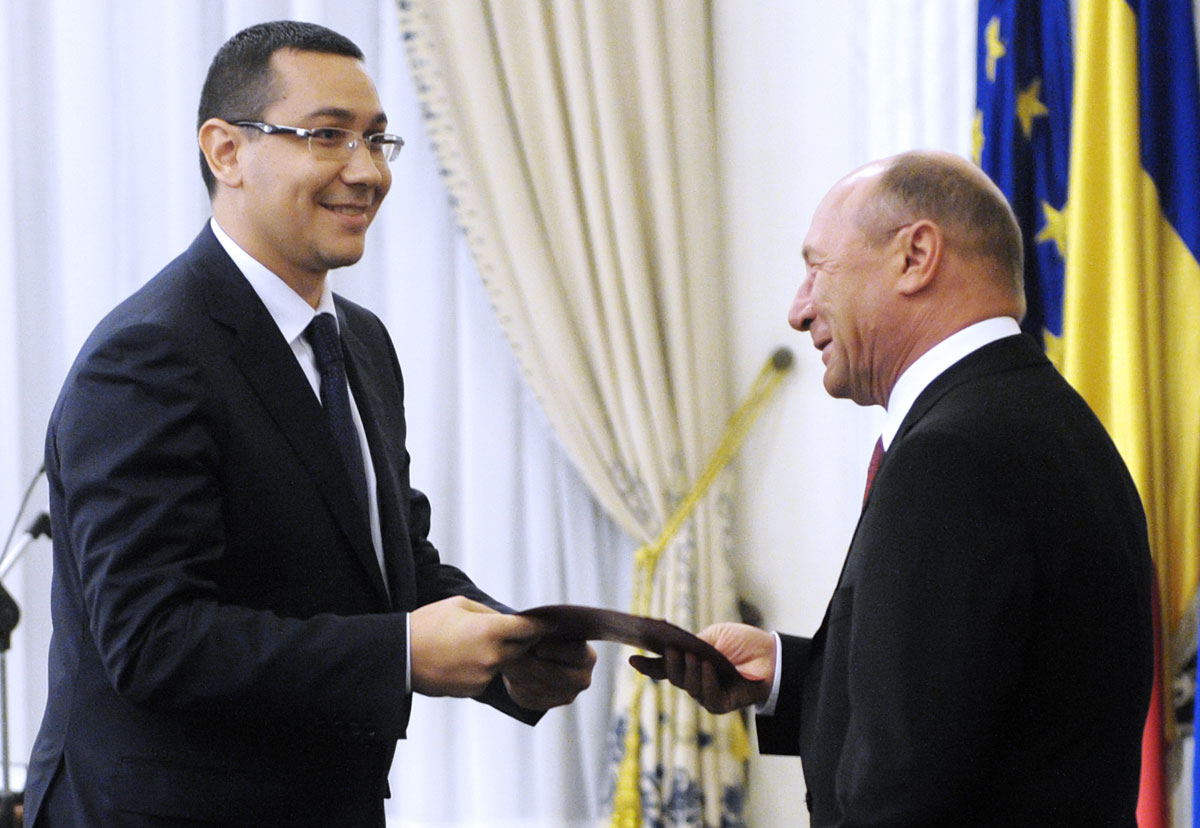Victor Ponta came to power in Romania in May amid high hopes that the boyish-looking 40-year-old — the youngest prime minister in the European Union — would usher in a generational change in a country that has struggled to overcome one of the harshest Communist legacies of the former Soviet bloc.
Prime Minister Victor Ponta, left, in Bucharest this week in the government palace. The European Commission’s president has warned Mr. Ponta about Romania’s troubles.
Instead, Romanian politics have seldom been more poisonous. After Mr. Ponta’s failed attempt to impeach President Traian Basescu in July, the two men can barely stand being in the same room with each other, according to associates. They are now locked in an uncomfortable cohabitation until elections in December. And even that vote, analysts say, may prove inconclusive.
(…)
There is little indication, however, that the political tumult will end soon. Mr. Ponta’s leftist coalition is expected to do well in the elections in December, analysts say, but may fall short of winning a majority that might break the deadlock.
While the prime minister’s performance has generated doubts, voters appear even more disenchanted with the rightist party of Mr. Basescu, which they associate with deeply unpopular austerity measures.
More than anything, the relentless sparring and stalemate has engendered a deep sense of disappointment among Romanians in the promise of their young democracy and disillusionment in their political leadership.

Asocierea lui ”Mr. Ponta” cu ”young democracy” mi-a adus aminte de fetițele lu Negoiță.